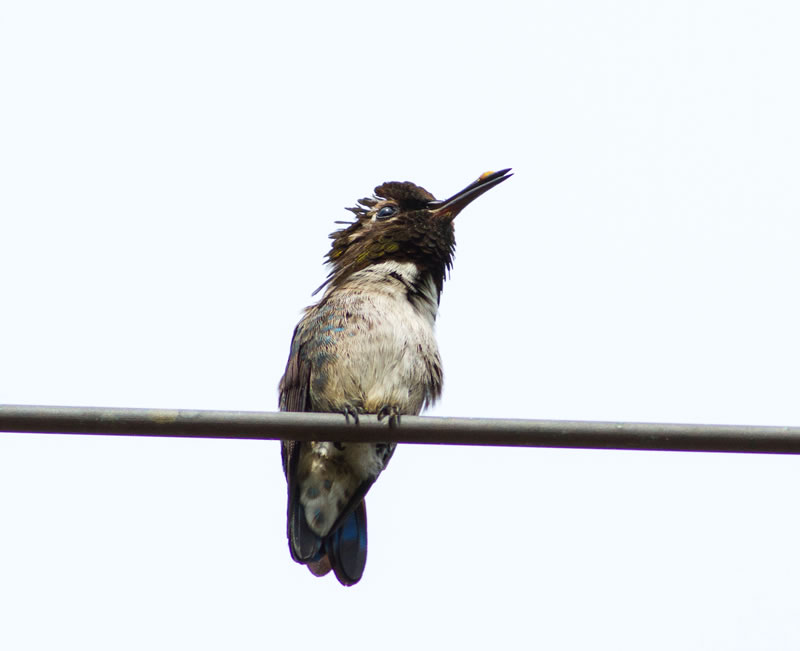
Category: Birds

Bee hummingbirds (Mellisuga helenae), native to Cuba, weigh about as much as a dime and are about 2.5” long, eat their weight in nectar every day, and lay the smallest eggs of any bird. Like all hummingbirds, these amazing creatures have heartrates that can go over 1000 beats per minute and wings that can flap 80 or more times per second – yes, that’s per second. Bee hummingbirds are not “pets,” in that they are not domesticated, but with hummingbird feeders and specific flowers, they will respond to invitations to gather food on your property, a treat for the many people who enjoy watching, listening to, and caring for them. The bee hummingbird’s estimated life span is about 10 years, with documented lives of banded birds reaching 11 years.

Sugar, Honey Honey…
Too much sugar in the diet leads to obesity for humans: if we drink a can of soda pop (which is mostly high fructose corn syrup), the fructose is converted into fat by our livers; drink too many too often, and we end up gaining weight. But for hummingbirds, sugar isn’t something to eat sparingly: it is a source of power! Because of their simple, sugar rich diet, hummingbirds have adapted the ability to fuel their muscles with fructose without first converting it to fat - a feat unique among vertebrates. We do not yet know for sure how they process it so fast, though experiments have demonstrated that they do indeed possess this amazing capability. How fast, you ask? Their metabolisms are so extreme, a human-sized hummingbird would have to drink a can of soda pop every minute in order to gain weight!
Learn more >>
 Discover Animals is a web-based educational resource offered by the NAIA
Discover Animals is a web-based educational resource offered by the NAIA